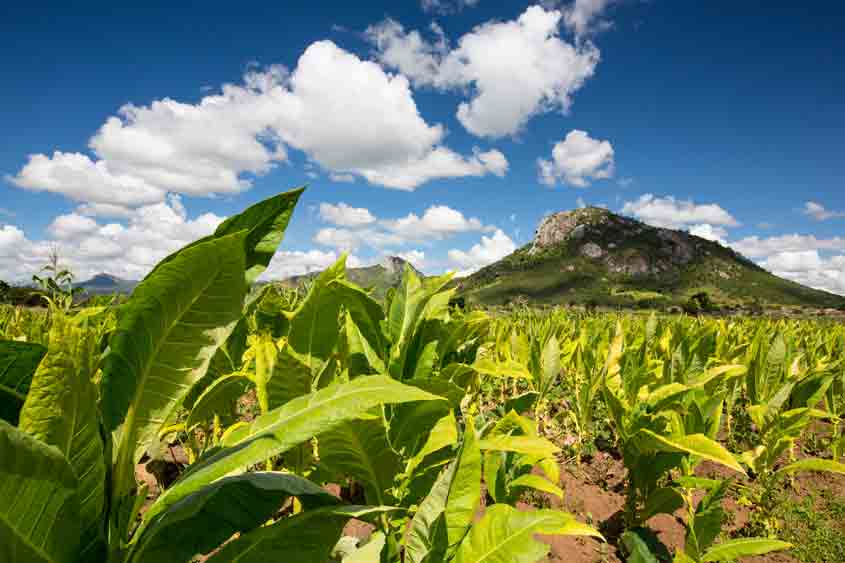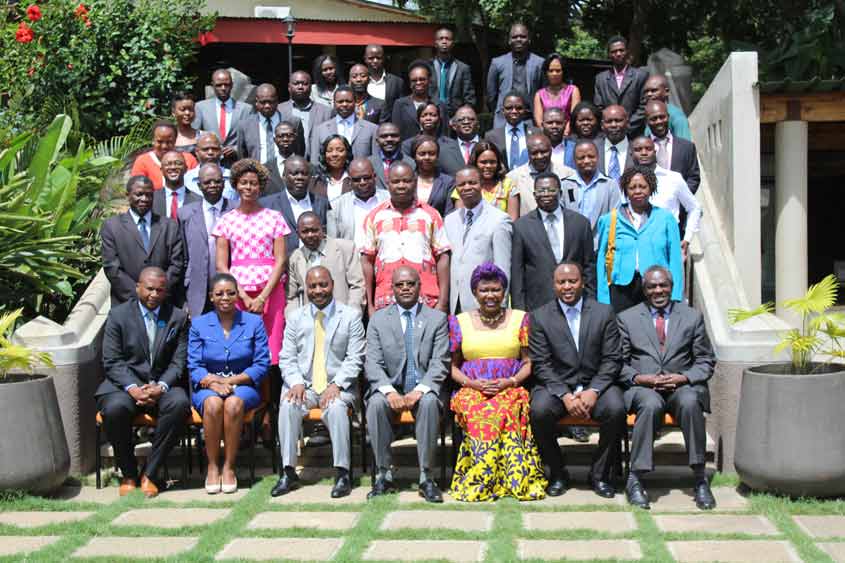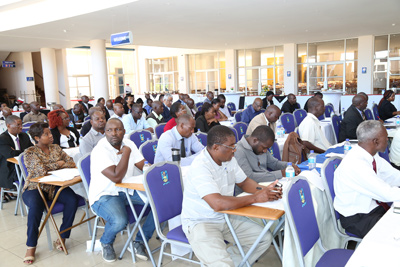By Susan Mwiti, African Regional Intellectual Property Organization (ARIPO), Harare, Zimbabwe
Developing the infrastructure, capabilities, and policies to enable Africa to move to a sustainable future is central to the African Union Agenda 2063, but remains a significant challenge.

Persistent gaps in capacity across Africa stem, in large part, from a “mismatch” between training and the evolving needs of the economy. Many countries continue to focus on training in the humanities and far less on encouraging students to acquire scientific and technical skills. Globally, 80 percent of humanities’ graduates are from Africa. Ninety-five percent of African students study social science, business, and law and just four percent study engineering, manufacturing, and construction. Yet more worrying, only two percent study agriculture, a sector that generates around 32 percent of the GDP of African countries.
The need to build IP capacity to harness African innovation
Practical interventions that address capacity-building imperatives and that support Africa’s structural transformation are therefore critical to the continent’s socio-economic performance and growth. The need to build intellectual property (IP) capacity is one area requiring urgent attention. Some African countries still have no IP office in place, and among those that do, few have developed and rolled out effective national IP policies and strategies to support their economic ambitions.
Africa has a strong tradition of innovation and creativity. While it commands extraordinary creative resources, it has often struggled to realize their full economic potential. A widespread lack of understanding of the role and economic potential of IP rights and limited access to functional IP systems are largely to blame.
ARIPO’s roving IP seminars
Over the past four years, in a bid to bridge this gap, the African Regional Intellectual Property Organization (ARIPO) has been organizing roving seminars on IP across its 19 member states. Making better use of IP for business competitiveness and development in Africa was a central theme of the 2014 and 2015 seminars, which targeted senior government officials, policymakers, and law makers on the one hand, and the business community on the other hand. With respect to the former group, the aim was to demonstrate the importance of effective IP policy in fostering social and economic development, and the need to establish robust and effective IP legal frameworks at the national level, for example, by signing up to various regional and international IP agreements. In reaching out to the local business community, the aim was to highlight the role that IP rights can play in supporting profitability and business growth.
Our aim is to raise awareness among the research community about the urgent need to develop sound institutional IP policies to stimulate innovation and the commercialization of research results.
Fernando dos Santos, Director General, ARIPO
In 2014, roving seminars were held in Eswatini (formerly Swaziland), Gambia, Liberia, Mozambique, and Sierra Leone. These efforts helped pave the way for Gambia to ratify the Swakopmund Protocol on Traditional Knowledge and Expressions of Folklore (see box) and advance various IP-related legislative reforms. The following year, roving seminars were held in Ghana, Kenya, Lesotho, Rwanda, and Zambia.
Beginning in 2016, the focus of the seminars moved toward fostering creativity and innovation for economic growth and development in Africa, in line with ARIPO’s drive to promote the development of the region’s IP ecosystem and support national efforts to harness the value of local innovative and creative resources.
In 2016, roving seminars were held in Botswana, Namibia, and Uganda, and in the following year, in Malawi and the United Republic of Tanzania. To date, around 2,030 participants have taken part in the seminars, which have been held in 15 of ARIPO’s 19 member states.

Raising IP awareness among Africa’s research community
Recognizing their strategic importance as generators of IP, since 2017 ARIPO has been targeting its outreach efforts toward universities and research institutions. The aim here has been to encourage them to develop and implement effective IP policies and to strengthen understanding within the research community about how to manage IP assets effectively and the options available to them when they want to protect and commercialize those assets in domestic, regional, and international markets.
The seminars cover a range of topics, including: principles and concepts of IP, basic principles of patent drafting, and the enforcement of copyright and related rights in the digital era. They encourage researchers to move beyond the “publish or perish” mindset and to embrace the strategic management, use, and exploitation of their IP assets.

So far this year, roving seminars have been held in Botswana, Liberia, Mozambique, Namibia, and Zimbabwe. By July 2018, more than 850 participants from universities and research institutions had benefitted from the seminars. The roving seminar program is set to continue through 2020.
“We are working to build IP awareness and understanding within the region’s universities and research institutions because these organizations are responsible for creating a significant amount of new knowledge and are major potential generators of IP,” explains ARIPO Director General Fernando Dos Santos. “Our aim is to raise awareness among the research community about the urgent need to develop sound institutional IP policies to stimulate innovation and the commercialization of research results,” he adds, noting that “most economies are aspiring to become innovation-driven knowledge economies, built on intellectual capital and IP rights, the potential of which remains largely untapped in many African universities and research institutions.”
A recent situational IP analysis commissioned by WIPO revealed that most African universities and research institutions are struggling to establish institutional IP policies and strategies required to protect their research outputs. These findings have prompted ARIPO and WIPO to jointly develop a series of Guidelines on Developing Intellectual Property Policy For Universities and R&D Institutions in African Countries, to provide practical assistance in developing and implementing the types of institutional IP policies that will enable them to leverage the commercial value of their research outputs. A series of pilot projects is foreseen to further advance these efforts. “We believe that these initiatives will go a long way in helping universities and research institutions steer their research efforts towards the use of IP to support outcomes of greatest potential benefit to society,” says Mr. Dos Santos.
For its part, the African research community has been overwhelmingly positive in its readiness to embrace strategic use of IP. Over 40 universities in 15 African countries have expressed an interest in taking part in these pilot projects. The aim is to engage with each of them to support them in using the guidelines to develop their institutional IP policies.
Building Africa’s IP talent pool
Over the past decade, ARIPO has also been working to expand the pool of IP talent in Africa. In partnership with WIPO and the Africa University in Mutare, Zimbabwe, since 2008, ARIPO has supported a Master’s program in intellectual property (MIP). So far, nearly 300 students from over 26 African countries have graduated from that program.
In 2016, ARIPO conducted a Tracer Study of MIP graduates. It revealed that many of the graduates are now active within the national IP systems of their home countries. Many are actively shaping national and institutional IP laws and policies, while others are teaching IP in universities and colleges or sharing their IP expertise through a variety of national IP awareness programs.
To further expand the continent’s IP talent pool, ARIPO is also partnering with the Kwame Nkrumah University of Science and Technology in Kumasi, Ghana, in launching a two-year Master of Intellectual Property degree (MPhil) program in August 2018. And in May 2019, another Master of Intellectual Property degree program will be launched in partnership with the University of Dar es Salaam in the United Republic of Tanzania.
Progress, but challenges remain

University of Science and Technology in Bulawayo, Zimbabwe.
So far, over 2,000 participants have taken part in
ARIPO seminars, which have been held in 15 of
ARIPO’s 19 member states (photo: Courtesy of ARIPO).
While significant progress has been made, there is still a great deal to be done. Africa’s pool of IP professionals remains small and falls well short of what the continent needs if it is to harness Africa’s potential for innovation. In 2016, according to WIPO, IP offices located in Africa received a fraction – just 0.5 percent – of the 3.1 million patent applications filed around the world.
“The general lack of IP awareness in Africa explains the low percentage of international applications filed under WIPO’s Patent Cooperation Treaty (PCT) and the low uptake of IP support services offered by national IP offices and ARIPO,” says Mr. Dos Santos.
Despite the challenges it faces, ARIPO believes that a great deal can be achieved to transform Africa’s IP landscape in line with its Value & Growth Strategic Plan, 2016-2020. The time is ripe to advance Africa’s aspirations and goals in the area of IP and innovation. Working with academic institutions to ensure that they have IP policies in place will help catalyze the development of national innovation ecosystems, support IP awareness among key IP generators, and enable African countries to harness the value of their creative and innovative resources in support of sustainable national economic development. Through its IP capacity-building and awareness programs, ARIPO is committed to supporting Africa’s long-term development goals.
About the Swakopmund Protocol
The Swakopmund Protocol on the Protection of Traditional Knowledge and Expressions of Folklore was adopted in 2010 by ARIPO member states. It seeks to address inherent inadequacies within the conventional IP system by providing effective protection for the wealth of African natural and cultural resources that have contributed to the advancement of the arts, science, and technology. The Protocol also seeks to prevent misappropriation, misuse, and unauthorized exploitation of these resources by third parties.

